-
100s of deaths in two cities in 2003 heatwave due to man-made climate change: Scientists

Scientists have specified how many deaths can be attributed to man-made climate change during an extreme heatwave in two European cities in 2003. The study says that with climate change projected to increase the frequency and severity of future heatwaves, these results highlight an emerging trend. The authors suggest that such research gives policymakers better information about the damaging effects of heatwaves to help them respond to the future challenges of climate change.
-
-
Super-sniffer mice detect land mines, decode human olfactory system
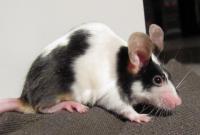
Researchers have created super-sniffer mice that have an increased ability to detect a specific odor. The mice, which can be tuned to have different levels of sensitivity to any smell by using mouse or human odor receptors, could be used as land-mine detectors or as the basis for novel disease sensors.
-
-
U.S. suffered at least $8 billion climate-related disasters so far this year
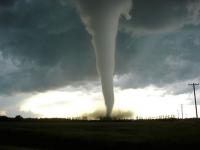
We are only halfway through 2016 and the United States has already seen eight weather and climate-related disasters* that have each met or exceeded $1 billion in damages. These eight disasters resulted in the loss of thirty lives, and caused at least $13.1 billion. Since 1980 the United States has sustained 196 weather and climate disasters in which overall damages/costs reached or exceeded $1 billion. The total cost of these 196 events exceeds $1.1 trillion.
-
-
June was the warmest on record for contiguous U.S.
Summer is off to a sizzling start. The average June temperature for the Lower 48 states was 71.8 degrees F, making it the warmest June on record. Above-average temperatures spanned the nation from coast to coast, and seventeen states across the West, Great Plains, and parts of the Southeast experienced temperatures much above average. June precipitation for the contiguous U.S. averaged 2.46 inches, 0.47 inch below average, ranking as the fourteenth driest on record.
-
-
Better soil data is key for future food security
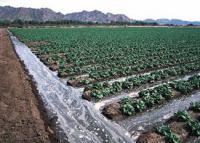
To project how much food can be produced in the future, researchers use agricultural models that estimate crop yield, or how much of a crop can be produced in a certain amount of space. These models take into account factors like climate and weather variability, irrigation, fertilizer, and soil type. A new study shows that the type of soil used in such a model can often outweigh the effects of weather variability — such as year-to-year changes in rainfall and temperature.
-
-
DHS announces the Countering Violent Extremism grant program
Secretary of Homeland Security Jeh Johnson on Wednesday announced the Fiscal Year (FY) 2016 Countering Violent Extremism (CVE) Grant Program, with $10 million in available funds. DHS snotes that this is the first federal assistance program devoted exclusively to providing local communities with the resources to counter violent extremism in the homeland.
-
-
Can next-generation bomb ‘sniffing’ technology outdo dogs on explosives detection?
With each terrorist attack on another airport, train station, or other public space, the urgency to find new ways to detect bombs before they’re detonated ratchets up. What researchers have wanted to develop for a long time is a new chemical detection technology that could “sniff” for explosives vapor, much like a canine does. Many efforts over the years fell short as not being sensitive enough. My research team has been working on this problem for nearly two decades – and we’re making good headway. Inspired by the tremendous detection capabilities of dogs, we’ve made remarkable advances toward developing technology that can follow in their footsteps. Deploying vapor analysis for explosives can both enhance security levels and provide a less intrusive screening environment. Continuing research aims to hone the technology and lower its costs so it can be deployed at an airport near you.
-
-
Electronic nose detects pesticides, nerve gas
Detecting pesticides and nerve gas in very low concentrations? An international team of researchers has made it possible. The researchers have built a very sensitive electronic nose with metal-organic frameworks (MOFs). The chemical sensor can easily be integrated into existing electronic devices.
-
-
Applying public health models to gun violence
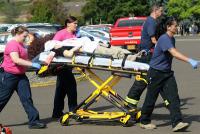
Research treats shootings like an epidemic — by applying public health models. Data indicate an individual’s odds of being a gunshot victim increase with exposure to gun violence. The work focuses not on mass shootings or isolated incidents of violence – rather, the researchers have worked to gather data on populations that face persistent threats of gun-related attacks and homicides, often connected to gang and drug activity.
-
-
Huge helium discovery in Tanzania is “a life-saving find”
Helium does not just make your voice squeaky — it is critical to many things we take for granted, including MRI scanners in medicine, welding, industrial leak detection, and nuclear energy. However, known reserves are quickly running out. Until now helium has never been found intentionally — being accidentally discovered in small quantities during oil and gas drilling. Researchers have developed a new exploration approach, and the first use of this method has resulted in the discovery of a world-class helium gas field in Tanzania.
-
-
Thirty-one leading scientific societies call for action on climate change
In a consensus letter to U.S. policymakers, a partnership of thirty-one leading nonpartisan scientific societies the other day reaffirmed the reality of human-caused climate change, noting that greenhouse gas emissions “must be substantially reduced” to minimize negative impacts on the global economy, natural resources, and human health. Climate-change impacts in the United States have already included increased threats of extreme weather events, sea-level rise, water scarcity, heat waves, wildfires, and disturbances to ecosystems and animals, the intersociety group reported.
-
-
Climate assessment must be relevant and useful to policymakers
Climate change assessments must be more relevant to policymakers’ needs, experts say. They argue that coming off the Paris agreement late last year, ambition for fighting climate change is high. They assert that groups like the Intergovernmental Panel on Climate Change (IPCC) should capitalize on this increased enthusiasm by integrating studies and presenting their results in ways that are useful to policymakers.
-
-
Holocaust survivors give historic $400 million gift to Ben-Gurion University
A couple who survived the Holocaust and made a fortune investing with Warren Buffett left a $400 million bequest to Ben-Gurion University (BGU). The bequest, much of which is earmarked to fund water-related research, is expected to double the size of BGU’s current endowment. The university’s Zuckerberg Institute for Water Research focuses on sustainability of water resources, desalination techniques, and improving water quality.
-
-
We need better information to understand extreme weather
Scientists need more credible and relevant information to help communities become more resilient to extreme weather events such as floods. Researchers need improved techniques to be able to understand why the climate is changing, and the part humans play in this process, experts say.
-
-
Crop breeding is not keeping pace with climate change
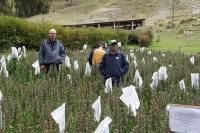
Crop yields will fall within the next decade due to climate change unless immediate action is taken to speed up the introduction of new and improved varieties, experts have warned. The researchers focused on maize in Africa but the underlying processes affect crops across the tropics.
-
More headlines
The long view
A Shining Star in a Contentious Legacy: Could Marty Makary Be the Saving Grace of a Divisive Presidency?
While much of the Trump administration has sparked controversy, the FDA’s consumer-first reforms may be remembered as its brightest legacy. From AI-driven drug reviews to bans on artificial dyes, the FDA’s agenda resonates with the public in ways few Trump-era policies have.
Risk Assessment with Machine Learning
Researchers utilize geological survey data and machine learning algorithms for accurately predicting liquefaction risk in earthquake-prone areas.
Foundation for U.S. Breakthroughs Feels Shakier to Researchers
With each dollar of its grants, the National Institutes of Health —the world’s largest funder of biomedical research —generates, on average, $2.56 worth of economic activity across all 50 states. NIH grants also support more than 400,000 U.S. jobs, and have been a central force in establishing the country’s dominance in medical research. Waves of funding cuts and grant terminations under the second Trump administration are a threat to the U.S. status as driver of scientific progress, and to the nation’s economy.
The True Cost of Abandoning Science
“We now face a choice: to remain at the vanguard of scientific inquiry through sound investment, or to cede our leadership and watch others answer the big questions that have confounded humanity for millennia —and reap the rewards.”
Bookshelf: Smartphones Shape War in Hyperconnected World
The smartphone is helping to shape the conduct and representation of contemporary war. A new book argues that as an operative device, the smartphone is now “being used as a central weapon of war.”
New Approach Detects Adversarial Attacks in Multimodal AI Systems
New vulnerabilities have emerged with the rapid advancement and adoption of multimodal foundational AI models, significantly expanding the potential for cybersecurity attacks. Topological signatures key to revealing attacks, identifying origins of threats.
